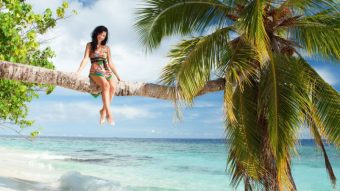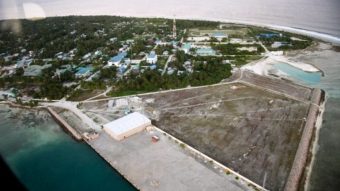
Sailor Hull Insurance by Amana Takaful
[vc_row][vc_column][vc_column_text]Hull Insurance is not known in detail by many. Here are some questions that would enlighten the understanding of Hull covers.
- For how long has the Marine Hull insurance been in practice? How did this originate?
Marine Hull insurance goes back over 330 years to a little coffee shop in London run by Mr. Edward Lloyd. Shipping merchants would meet there to discuss matters of the day and on one notable occasion one merchant came in with the terrible news that his ship had been lost. In a gesture of friendship and solidarity his friends clubbed together and gave him enough money to buy another boat. Following this they decided to save money on a weekly basis and so began the concept of risk sharing and insurance. Lloyd’s remains the home of marine insurance today, writing insurance from countries all around the world.
- Why do Ship Owners buy insurance?
Ship-owners buy insurance for a variety of reasons – the most common being financial necessity, it being financially impossible to replace the vessel in the event of a total loss, without the assistance of an outside party. Losses occur for many different reasons and no matter how carefully the owner and his captain operate the vessel, the risk of a loss as a result of the negligence of a third party remains high. In addition, heavy weather, freak waves, typhoons, tsunamis, submerged objects and other perils of the sea can still cause the most careful captain to lose his vessel if he is unlucky.
If the vessel is mortgaged, the lending bank (mortgagee) will usually require that the vessel be insured.
Other more cash rich companies choose to insure their vessels as a means of Balance Sheet protection.
- What type of Marine Hull Insurance covers can an owner buy?
The breadth of cover is basically a negotiation between Insured and Insurer. The most commonly accepted clause on a global basis are the Institute Time Clauses – Hulls, which have many years of legal precedent attached to them in the UK.
The options available under the clauses are Full Conditions (Comprehensive) cover which is the widest option offering a list of Named Perils including ‘perils of the sea’ which is very broad and Total Loss only (including Salvage, Salvage Charges and Sue and Labour).
Naturally the broader the coverage the more premium you pay, but it is also possible to negotiate coverage that is a mix of the above in order to satisfy your own needs and requirement.
The Institute Time Clauses offer basically First Party coverage, meaning they cover the vessel; the only element of Third Party cover is the liability for collision. So what about the ship-owner’s legal liability to others? His liability to his crew, passengers, cargo, pollution and all his other liabilities? This is referred to as Protection & Indemnity and is also possible to purchase, in order to make sure that as many aspects of exposure as possible are covered; this is usually covered with a different set of insurers.
- What kind of additional covers are available to support the owners of the vessel?
In addition to the basic coverages outlined above, the insurance market recognizes other issues faced by ship-owners. In the event of a partial loss, requiring the vessel to go into a repair yard for repairs, the ship-owner will lose his “day-rate” on the vessel during the period when the vessel is under repair. Insurers also recognize this exposure and will sometimes (but not always) offer Loss of Hire insurance for the period of repairs.
Other customized solutions are also designed by insurers that cover Passenger & Crew liability as well as Removal of wreck.
- How do insurance companies rate the insurable risk to determine the premium?
There are not rating tariffs in the marine insurance market. The following factors are commonly used to assess the risk:
- Age
- Type
- Gross Tonnage
- Classification
- Insured’s experience
- Captain’s experience
- Insured’s loss record, on all vessels owned or managed
- Trading area
- Type of cargo carried, or
- How many passengers the vessel can carry
- In the event of a claim, what immediate measures have to be taken by the ship owners?
- Advise the insurer
- Make sure the Captain is taking all steps to preserve the vessel, cargo and crew
- Take photographs if possible
- Get the details of any third party involved in the loss
- Make sure that a surveyor has been appointed
- Agree with surveyor on next steps which may be the effecting of temporary repairs
- Obtain repair estimates
- Make sure that a careful note is made of all expenses incurred during recovery of the vessel and sending her to the repair yard
- Maintain consistent dialogue with insurer and surveyor at all times
- What are the key steps of the Insurer when there is a Marine Hull claim?
If the insured is insuring his vessel directly with the Insurer, then it is the Insurer’s job to advise the Insured of the steps to take in recovering his claim, as outlined above. The Insurer must make sure a Surveyor has been appointed and that his brief is clear, which would usually be to report on the circumstances of the loss, the extent of damage to the insured vessel, the extent of damage to any third party vessel, cargo or property, and the estimated cost of repairs.
- How can ship owners mitigate risks related to hull?
The majority of all claims are as a result of human error, even when the apparent cause may be heavy weather or even a typhoon. Often, after a loss when the circumstances are studied there are questions as to why the vessel was in the path of heavy weather or a typhoon and why steps were not taken to move out of the area. Groundings are usually as a result of negligent navigation or charts that are out of date. Usually fires in the engine room come down to poor maintenance and generally poor standards in the engine room. Collisions usually occur because the crew were literally not awake, or cutting corners. And so it goes on; the measures that a ship-owner can take all come down to crew training and re-training – just like airline pilots the crew need an annual reminder of what is expected of them.
Amãna Takaful recently embarked on another value addition initiative to conduct awareness programs to its customers in collaboration with Liveaboard Association Maldives (LAM). The session was designed to provide insights on risks related to hull maintenance, hull insurance coverage, measures of risk mitigation as well as international best practices.
Amãna Takaful Maldives was awarded the prestigious Gold Award in the ‘Takaful Institution of the Year’ category at recently held Islamic Finance Forum of South Asia Award (IFFSA) ceremony.[/vc_column_text][/vc_column][/vc_row]






